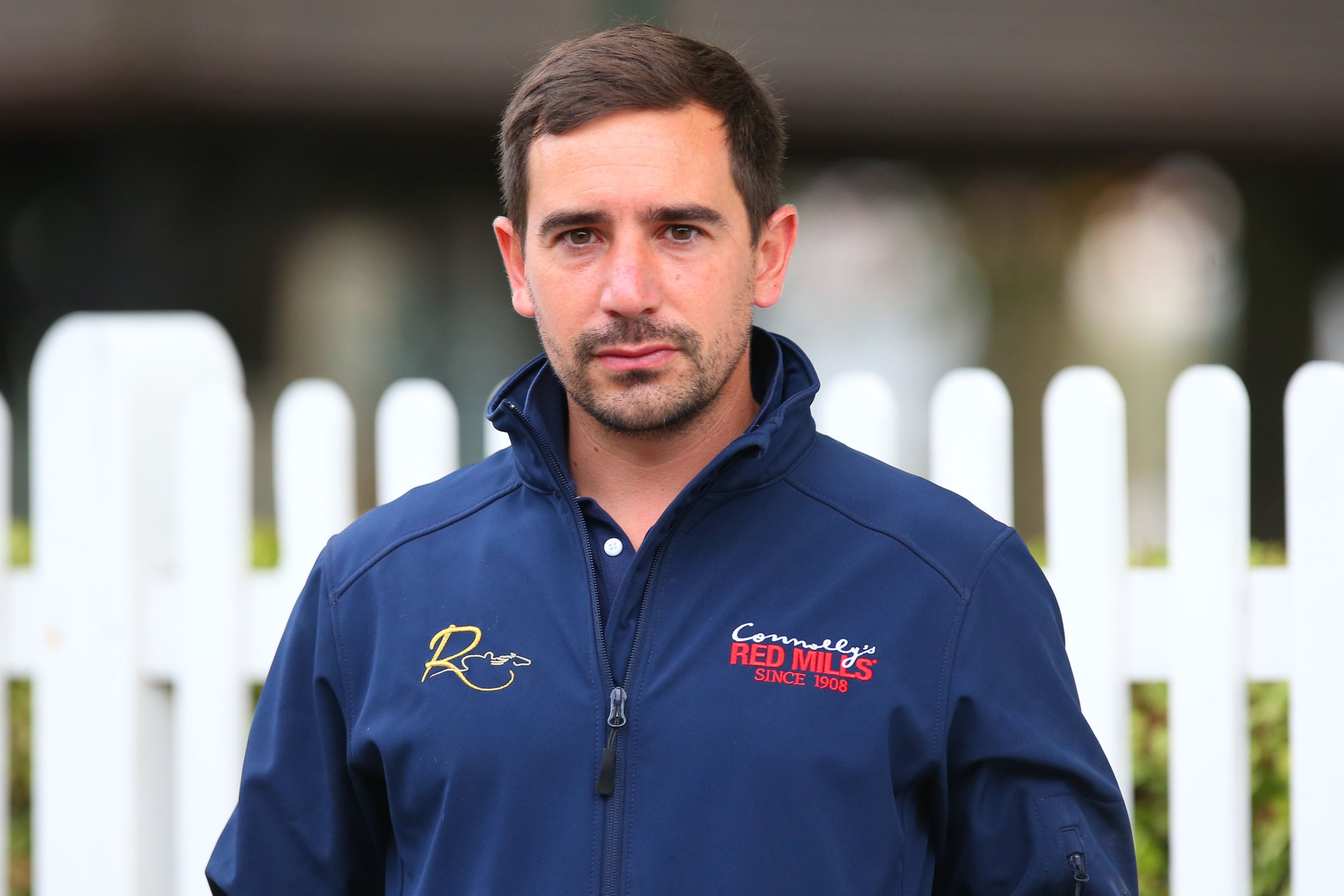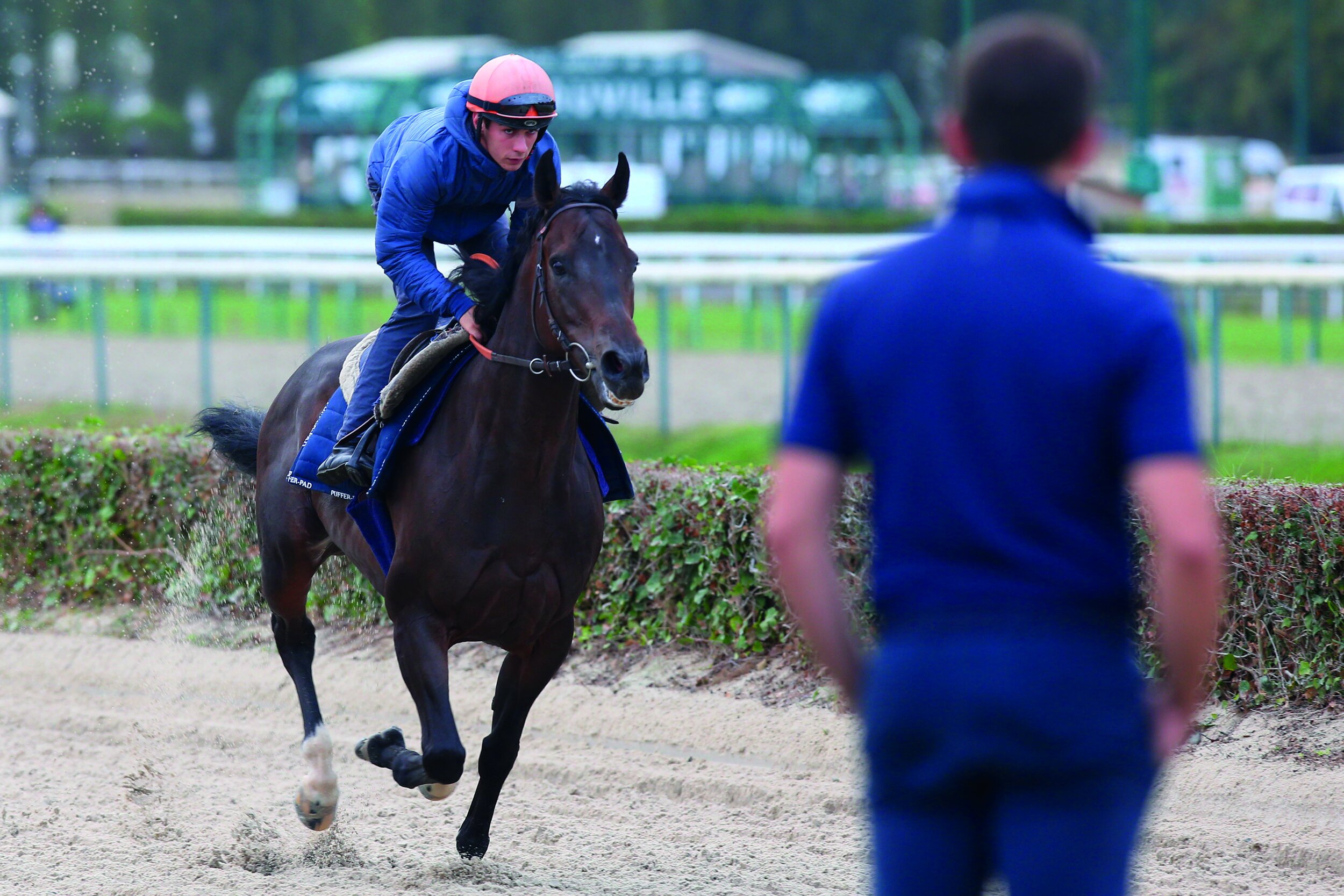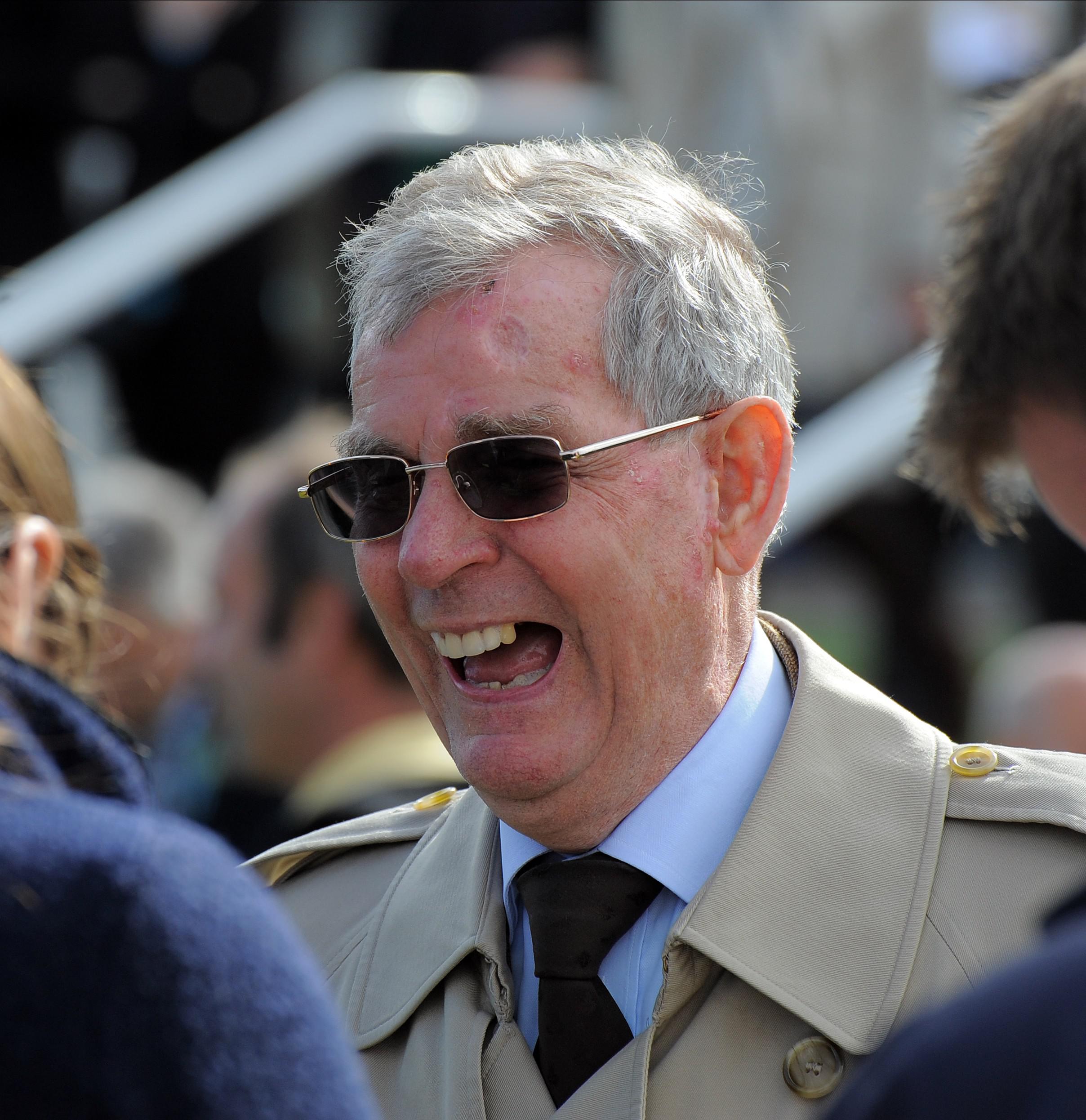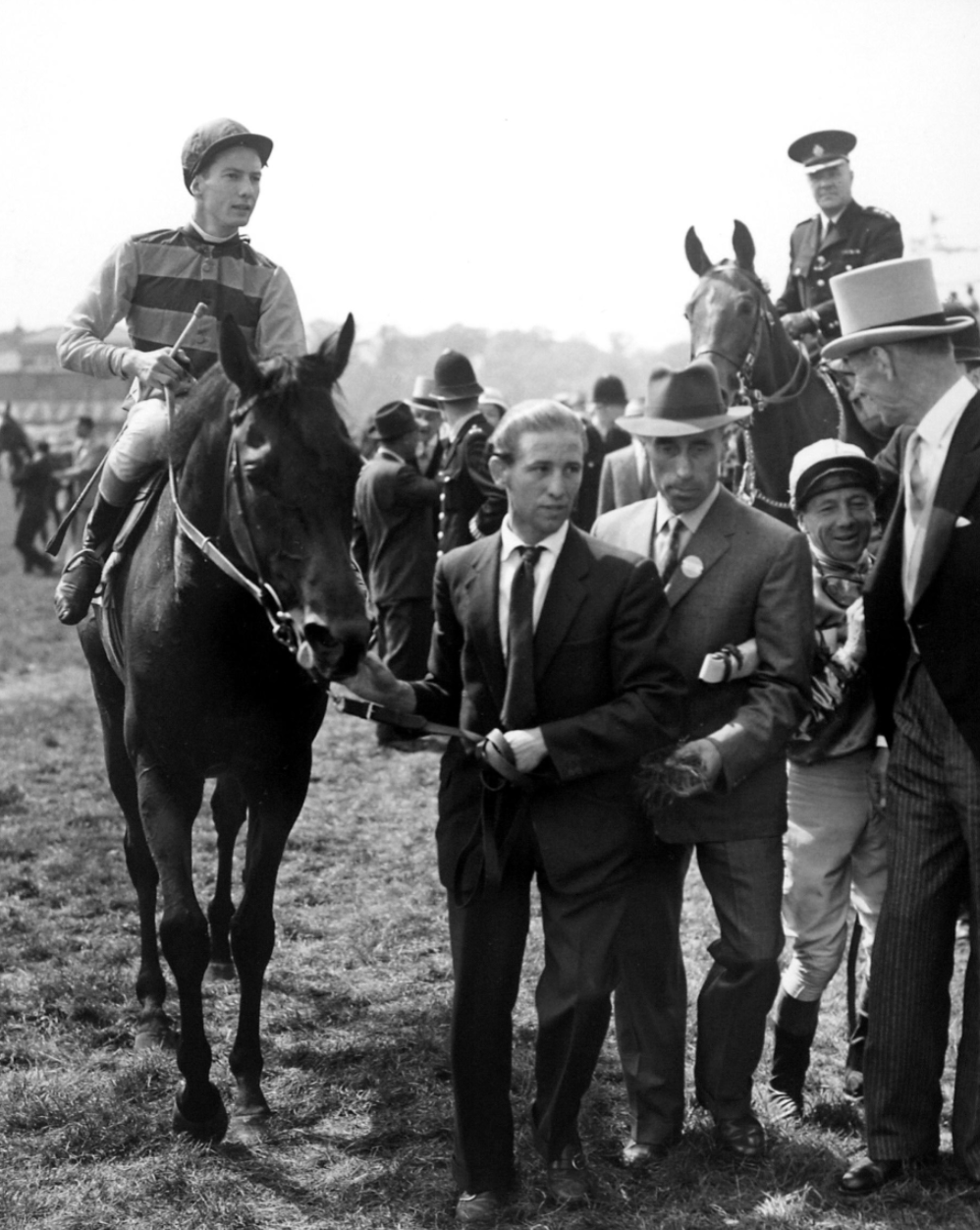Henke Grewe - the Classic winning German Trainer
/Article by Catrin Nack
When Grewe retired from race-riding and took up training in 2014, it wasn’t exactly the hottest news in German racing. He had been a middle-of-the-road jockey, never reaching lofty heights. But as a trainer, he has made it to the top of his profession.
Eleven years later and February 2025 - it’s six fifteen in the morning and It's pitch black. The first lot is out already, and Grewe is in the saddle.
The majority of German racehorses are trained on a racecourse. Nearly every main track – think Düsseldorf, Cologne, Hannover, Iffezheim or Hoppegarten – doubles as a training centre. A chosen few have the luxury of private premises, but Grewe shares Cologne racecourse with three other major trainers, and roughly 300 horses.
Shared facilities consist of a trotting ring, and two sand gallops, sand, not fibre. His roughly 78 boxes are split into four stable blocks, of various size and quality. The largest block of roughly 40 boxes was actually a grandstand in bygone times.
Tighter animal welfare measures saw a row of windows being installed, with one row of horses glancing onto the stable alley, the other side enjoying a room with a view to both sides.
Every box is filled generously with straw, something increasingly rare in domestic racing yards. “The year I used sawdust was my worst ever, and I am convinced there is a correlation. Horses feel comfy on straw so there you go.” Three horse-walkers grace the place, one is called “the terrace” as it has no roof. And basically, that’s it. The height of technical racehorse training.
A covered trotting ring is in the distance, but “that’s not mine. That’s Peters [Schiergen, of Danedream fame]” says Grewe.
No saltbox, treadmill, solarium, let alone a pool. Scales somewhere, “but I hardly use them.” He concedes that horses may have a perfect racing weight, “but I need to see that. If a trainer can´t spot it, well….”
There is a simplicity in the whole setup, mirrored in the trainer´s beliefs. “Really, you can train a horse anywhere. Hans-Walter Hiller [who was Champion Trainer in 1999, and whose yard he was attached to as a jockey] trained on a strip next to a motorway, so clearly you don’t need much.”
Grewe’s principles when it comes to readying horses are cut from the same cloth. “The most important thing is routine. Routine. Once the horse figures out what he has to do he can relax in that routine, and he feels secure. I don’t like fresh horses. On average my horses are out three hours a day, it comes down to three things: routine, the feeding, and proper medical care.”
The yard has a couple of paddocks now too, and some horses are turned out in the afternoon. Roughly 23 people work for Grewe, with active and retired jockeys playing a vital part in the morning. Thore Hammer-Hansen is one of them.
Having returned to his roots in 2024, the jockey, with a retainer from Cologne racecourse president Eckard Sauren, wasted little time to take German racing by storm. He combined with Grewe (but not Sauren) to win the German Derby on Palladium (more of him later); the end of the year saw him crowned Champion jockey as well.
Fresh from a trip to Riyadh, where he guided the Marian-Falk Weißmeier-trained, Straight to a respectable 5th place at Gp.2 level, Hammer-Hansen feels slightly under the weather but is full of praise of Grewe, who “is a team-player and a very good trainer”.
Much needed positives after other work-riders declare that the trainer's most remarkable trait is “his bad mood before the first lot”. While such statements are (hopefully) tongue-in-cheek, the relaxed atmosphere with a lot of banter is duly noted; Grewe is usually riding three lots himself and doesn’t shy away from the general chores.
Grewe doesn't miss a beat: while preparing his horse and answering cumbersome questions at the same time, his eye is all over the place and every idleness is (duly) spotted.
It all started inconspicuously. Born in 1982, his parents had a couple of horses, so the foundations were laid early on. “I had to decide whether I wanted to be a professional table tennis player or pursue horses. I felt there was more money in the latter.” The good, the bad and the ugly, money is a recurring theme for Grewe.
It is what drives him, because, quite plainly, “I want to be rich”. Grewe retired from race-riding with a handful of Black-Type wins to his name. With the help of then-business partner Christoph Holschbach he set up a limited company to train racehorses on August 1st 2014, with a mere 12 (bad) horses; his first runner, just 20 days later, was a winner.
They kept coming. It was quantity over quality at first, “I had to get my name out”. In his prime Grewe had roughly 120 horses. The first Listed winner came in 2017, the first Group winner, Taraja in a Hamburg Gp.3, in May 2018. Khan, who eventually switched to hurdles, provided the breakthrough at the highest level when taking the Großer Preis von Europa in September 2018.
The hardy and consistent Rubaiyat flew the flag for four seasons; unbeaten as a 2yo in 2019, he won at least one Group race in every season. While he missed out on valuable Gp.1 glory, his trainers list of high-class winners started growing: the German Derby (Gp.1) twice (Sisfahan and Palladium), the German Oaks (Muskoka), the Großer Preis von Europa (Donjah and Khan), The Großer Preis von Bayern (Sunny Queen and Assistent).
When asked if he has a preference for fillies or colts, the answer is an emphatic “no”. While the German Derby was the highlight of 2024 (next the birth of his son Mikk), the yard won eight more Group races. Having been crowned Champion Trainer in 2019 and 2020, Grewe's focus started to shift.
He still likes to travel, but now it´s for Black-Type and not for claimers. His intimate knowledge of the French racing system means that country still is his preferred hunting ground, along with Italy, where he has won 10 Group-races to date if our counting hasn’t let us down. But gone are the days when for every domestic runner he had two abroad.
Grewe no longer has that number of horses, nor does he want to. “Horse numbers are down [in Germany] because training is just too expensive,” he admits. “Look, I am very open about this but every month my owners part with €3000 per horse. Who can afford that? Look at the prize money and do the maths. Syndicates are the solution, no two ways about it.”
It helps that Grewe has syndicated horses in his yard. While Germany may not be ready for micro share syndicates (even though Hammer-Hansen evidently thinks so), it was certainly ready for a syndicate called Liberty Racing, founded in 2020 by shrewd entrepreneur Lars-Wilhelm Baumgarten and partner Nadine Siepmann. Selling 25 shares at €25.000 apiece (for a bundle of three hand-picked horses) may have taken some persuasion at first, but success came almost instantly; now there is a waiting list.
Buying (and owning) a Group 1 winner in every year since its foundation, Liberty Racing has now won two German Derby’s in a row. Fantastic Moon was their flagbearer in 2023 when taking the blue ribbon for trainer Sarah Steinberg, and Palladium was the winner of last year's race on the first Sunday in July - the traditional date for the German Derby.
Palladium was trained by Grewe, who still marvels in the wonders of it all. After spending considerable time telling me that he doesn’t ‘do’ emotions, doesn’t have a favourite horse and doesn’t get attached to horses, his eyes did light up when recalling that day. “Look, nothing came easy to Palladium and he didn’t excite us at home.” He ran ok as a 2yo [no win] and proceeded to win a small race on his fourth start, before finishing a lacklustre 4th in Germany's main Derby trial, the Union Rennen.
“I am still not sure what wonders combined in Hamburg and how we managed to win there. It was great, especially with my girlfriend being heavily pregnant with our first child [son Mikk was born later that month]“.
So you had emotions that day? “Maybe for five minutes,” he smiles.
Mikk naturally changed a lot. “Everything changed with him, and I wonder what I did all day before he came. We came home from a holiday the other day, so many suitcases and his buggy. I thought - clearly we need a bigger car! I don’t think it changed the way I train, but I do feel more pressure to succeed, to earn money as I want him to have every chance in life.” The money, right? No emotions, right?
Palladium of course went on to write his own chapter in Grewe's (and Liberty Racing’s) vita when selling for €1.4 million at last year's Arc Sale. This made him the highest-priced horse ever to go hurdling and joined Nicky Henderson’s famed Lambourn stable. He was a winner on his first start over the smaller obstacles at Huntingdon in late January. But, come this summer, an ambitious flat campaign may beckon too.
It's not that Grewe and Liberty Racing are resting on their laurels. The latter naturally features prominently on Grewe's owners list, with five 3yo’s for three different syndicates. Among those is a strapping son of Camelot, purchased for €180,000 at the 2023 BBAG Sales and from Röttgen Studs fabled A-damline.
Called Amico, and stabled in the same block that housed Assistent and Muskoka, Grewe asks, “do you want to see this year's Derby winner?” Well that is some introduction. History in the shape of three Derby winners in a row would beckon for Liberty Racing, and while that’s not unprecedented in the annals of the German Derby, it certainly hasn’t been done with shared ownership.
Nowadays Grewe trains roughly 80 horses and runs a tight ship. “It´s too expensive to have a bad horse in training and I am quick to call a spade a spade. Not everyone likes that.”
He always has an eye on the strike-rate and had nearly 30% winners to runners in 2024. His horses are brought along a little slower nowadays, but 2yo racing with its lucrative sales races is vital to his business. “Nothing wrong with training 2 year olds, in fact they need it and studies clearly show the benefit of starting early. I am no fan of pre-training though.”
He calls a spade a spade when it comes to German racing too, where low prize money, “ineffective” leadership and rival racecourses are his main complaints.
He misses the sense and obligations for the wider good of racing from the latter group in particular, but feels the tide is ever so slowly turning for the better.
“They [the racecourses] need to work together, and with the owners, to create a more potent environment. My impression is they slowly understand. I do speak my mind, and people listen.”
Syndicates, as mentioned, are Grewe’s idea of accelerating fortunes in German racing and he sees responsibilities with trainers, himself included. “I know I need to get much better at communicating with owners, and yes, no doubt trainers could – and should – set up racing clubs and syndicates.”
Grewe remains as hungry as ever, if not hungrier. “I have won nearly everything worth winning in Germany, but there is loads left abroad.” Eckhard Sauren's horse, Penalty - a rare son of Frankel on these shores, is pencilled in for European Gp.1 mile races.
Constant rumours suggest that Grewe is only biding his time in Germany, but more imminently he plans to take the helm of his training company buying out his (new) business partners in 2025. New chapters will be written, and the best is surely yet to come.

































